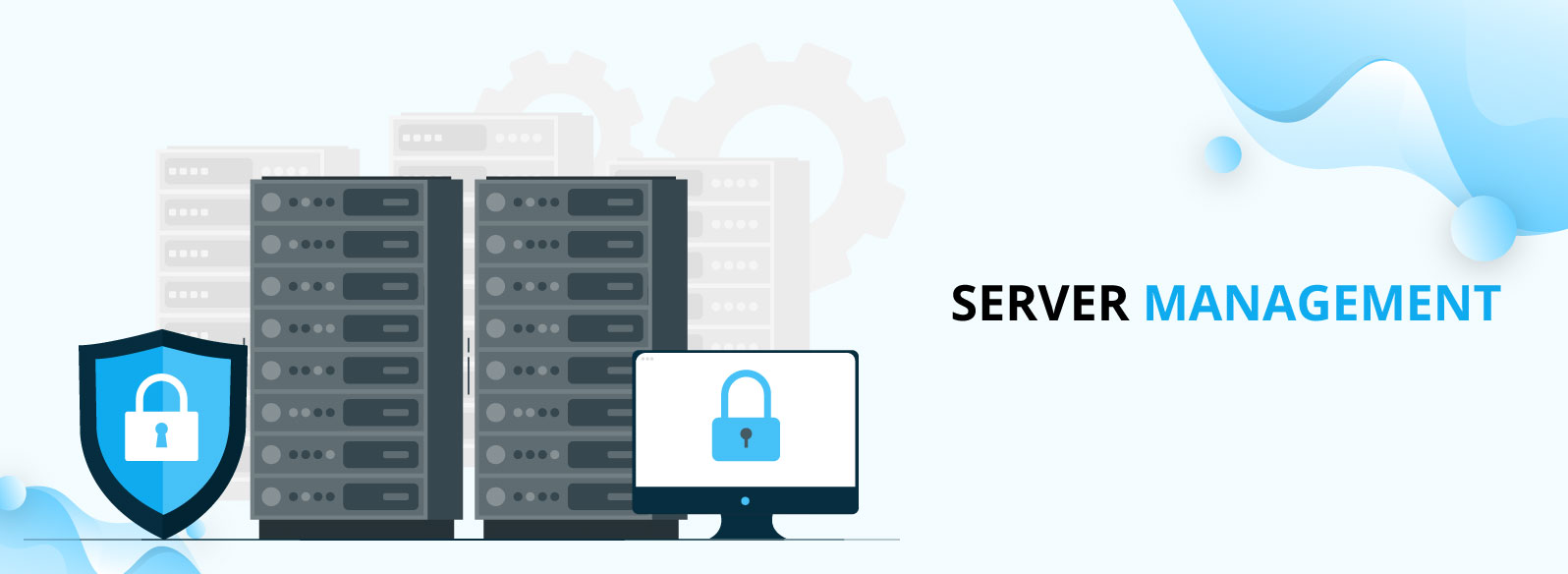Server management is the process of managing and maintiaining servers to keep them running with minimum downtime. It involves a set of routines that stretch between Operating System deployments, Patch Management, Software Deployment, Security Implementations for all the servers within a network. Server Management is crucial to enterprises that manage Windows servers and also maintain dedicated servers like Application Servers, Proxy Servers, Mail Servers, Web Servers, etc., to cater to their specific IT needs.
Endpoint Central works in the capacity of a server manager and desktop management software to help you you meet these critical ends of IT management with the following set of server management tools that make it an ideal server management system.

Rapid OS deployment is a crucial task, on servers in particular. Deploying Server OS might require an bunch of complicated activities like configuring BIOS, RAID, Remote Control Settings and much more. Endpoint Central's OS Deployer is one of the server management tools that comes in as the best solution for IT administrators wanting to deploy Operating Systems on multiple servers simultaneously. OS Deployer, with its central image capturing and deployment capabilities, helps standardize the entire organization on a single/few OS, thereby reducing the support, training and management costs in maintaining them. For more information related to the product features and functionality, take a quick look at the OS Deployer website.
Software Distribution on multiple servers is one of the key roles of Server Management tools. Attending Software Installation on individual machines, consumes lot of time and efforts apart from the reducing the productivity. Endpoint Central's Software Distribution options perform the role of a server manager and help to carry out Remote software installations and automate the software installation process on the network Servers in an organized manner.
Installing Patches and Service Packs on the network servers is ideally the first-step towards securing your enterprise's network. In addition to the operating system, the applications that run on the servers may also demand routine patch upgrades or service pack updates from time to time. Endpoint Central's server management solution helps you to maneuver Service Pack installation/Patch Management in multiple systems simultaneously, thereby opening doors to better time and resource management; an essential requisite of Windows Server Management.
Endpoint Central's Asset Tracking capabilities come in handy for network administrators to keep track of the hardware and software assets in the network. Tracking Assets is an essential routine to achieve greater visibility on the network's inventory. Competencies like scheduling, reporting and email notification give greater control to steer Inventory Management in an effective way.
Server Management is a laborious exercise, as Servers are generally maintained as isolated entities sharing a common or no monitor at all. This makes Remote Desktop Sharing options essential for administrators to connect and control remote Windows Servers individually or simultaneously to carry out Server Management operations. Server management software is thus, an essential tool for an IT administrator to have to perform server management and monitoring. Endpoint Central's web-based options extend administrators an easy access to servers from anywhere in the network without requiring any native client. Further, users can be made to specify the reason for Logging on to the remote Server, an essential piece of information expected during audit trials.
Configuring Windows applications, system settings, desktop settings and security policies on the network servers is essential to comply with the specific requirements across the enterprise. Endpoint Central's windows server management tool offers great flexibility to define target computers and users for the configuration using include/exclude criteria. Desktop Configuration, Computer Configuration, Application Configuration and Security Configurations are the four broadly classified configurations offered by Endpoint Central's windows server management software that cater to all the configuration requirements of Server Management. Check out Windows Configurations website to know more.
With Servers having become the backbone for non-stop business processes, adopting security implementations is a must for enterprises today. Performing the role of a server manager, Endpoint Central's server management solution caters to the security requirements of Windows Server Management in the following ways,
Learn more about Security Implementations here.
Server management is the process of managing servers and executing server performance management to keep the servers running and ensure that they experience minimum downtime using a server management solution. The set of routines that are involved in this include Operations System deployments, Patch management, Software deployment and Security implementations for all servers within a network. Endpoint Central encompasses all the deal aspects of a server management system that provides you with adequate server mangaement tools to implement all of the above measures to ensure optimum server monitoring and management.
The heart of any organization is its servers. It is also critical to keep them up to date with the proper monitoring tools. A Windows server management tool should include the following features:
Servers are the crux of any organization's information system. It houses all of the databases and provides client's access to these resources. It is critical to keep them operational at all times. Even a minor server update failure can have a negative impact on productivity. It is critical to have a good windows server management tool for your business in order to ensure the health of the servers 24 hours a day, seven days a week.
Hiring a full-time system administrator can be expensive. Instead, using a windows server management tool can be less taxing on both the workload and the wallet. With Endpoint Central server management, a more flexible IT infrastructure can be established with expert assistance available round the clock. Furthermore, cyberattacks can be stopped before they spread, with a defined set of security implementations and continuous monitoring. Endpoint Central's server management provides a comprehensive approach to Windows server management for all servers in a network, including OS deployments, Patch management, Software deployment, and Security implementations.